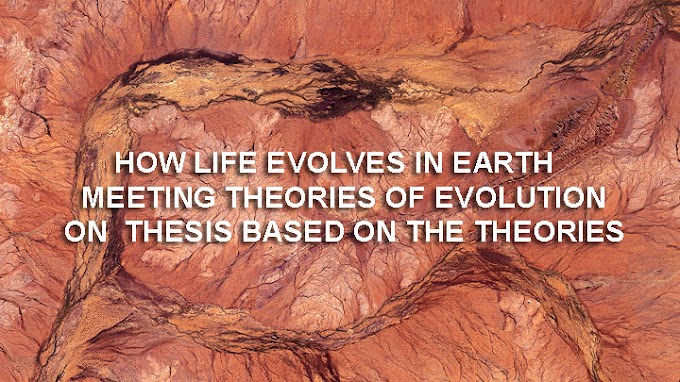The Future of Fuel Efficiency: Networked vehicles, Talking to Other vehicles
On the off chance that we extremely needed to eliminate carbon outflows amid our drive, rather than jumping into our autos each morning, we'd take care of business, and take the transport. But since we're entirely appended to our own autos (and America's open travel framework, you know, sucks) analysts are taking a shot at approaches to eliminate squandered vitality past arrangements like "take the transport." One approach? Give autos a chance to converse with each other.
This thought leaves late research from the University of Michigan and California Institute of Technology. Specifically, a self-ruling vehicle that was controlling its speed in view of the rates of different encompassing autos was 20% more vitality proficient than it was without those systems.
The key is looking past current "brilliant" voyage control highlights, which just react to the auto quickly before you. By interfacing with a more extensive system of autos through what the specialists call "vehicle-to-everything correspondence," the self-ruling vehicle could back off utilizing 60 percent less braking power than a human driver.
Since they realized what movement was coming a few autos away — rather than only a solitary auto before them — the organized autos required less fuel to get go down to speed, and accordingly, were more vitality effecient. At the end of the day, regardless of whether you're stuck in rush hour gridlock or drifting down a parkway, this innovation could give you a smoother, less sickening, more eco-accommodating ride.
This innovation can begin sparing fuel even previously (if?) self-driving autos increase boundless reception. Regardless of whether individuals were driving every one of the autos encompassing the self-ruling vehicle, the self-driving programming was as yet ready to smooth its speed changes, braking more tenderly and utilizing less fuel than it would have without the enhanced correspondence.
In a controlled investigation, human drivers in rush hour gridlock needed to confront a typical circumstance: somebody a few autos ahead hit the brakes, so they needed to react to the bind response and moderate too. A portion of the drivers hit the brakes hard, quickly decelerating from 55 MPH to a close quit, subjecting the auto to a power nearly as solid as gravity. Be that as it may, the self-governing autos had a much smoother encounter, with not as much as a large portion of the braking power. That is on the grounds that the self-driving autos could anticipate how the line of autos would act once it distinguished that the auto in front began to back off.
All things considered, in case you're genuinely worried about how much carbon dioxide you're putting into the air when you drive to work, remember that a transport pass is significantly less expensive and more earth cognizant than a self-driving auto with cutting edge route innovation. In any case, on the off chance that you leave with nothing else (you surely won't leave with an auto including these correspondence organizes at any point in the near future) do endeavor to dial down the brakes a bit. The earth will thank you, as will the self-ruling robots (and different people) attempting to understand your driving
On the off chance that we extremely needed to eliminate carbon outflows amid our drive, rather than jumping into our autos each morning, we'd take care of business, and take the transport. But since we're entirely appended to our own autos (and America's open travel framework, you know, sucks) analysts are taking a shot at approaches to eliminate squandered vitality past arrangements like "take the transport." One approach? Give autos a chance to converse with each other.
This thought leaves late research from the University of Michigan and California Institute of Technology. Specifically, a self-ruling vehicle that was controlling its speed in view of the rates of different encompassing autos was 20% more vitality proficient than it was without those systems.
The key is looking past current "brilliant" voyage control highlights, which just react to the auto quickly before you. By interfacing with a more extensive system of autos through what the specialists call "vehicle-to-everything correspondence," the self-ruling vehicle could back off utilizing 60 percent less braking power than a human driver.
Since they realized what movement was coming a few autos away — rather than only a solitary auto before them — the organized autos required less fuel to get go down to speed, and accordingly, were more vitality effecient. At the end of the day, regardless of whether you're stuck in rush hour gridlock or drifting down a parkway, this innovation could give you a smoother, less sickening, more eco-accommodating ride.
This innovation can begin sparing fuel even previously (if?) self-driving autos increase boundless reception. Regardless of whether individuals were driving every one of the autos encompassing the self-ruling vehicle, the self-driving programming was as yet ready to smooth its speed changes, braking more tenderly and utilizing less fuel than it would have without the enhanced correspondence.
In a controlled investigation, human drivers in rush hour gridlock needed to confront a typical circumstance: somebody a few autos ahead hit the brakes, so they needed to react to the bind response and moderate too. A portion of the drivers hit the brakes hard, quickly decelerating from 55 MPH to a close quit, subjecting the auto to a power nearly as solid as gravity. Be that as it may, the self-governing autos had a much smoother encounter, with not as much as a large portion of the braking power. That is on the grounds that the self-driving autos could anticipate how the line of autos would act once it distinguished that the auto in front began to back off.
All things considered, in case you're genuinely worried about how much carbon dioxide you're putting into the air when you drive to work, remember that a transport pass is significantly less expensive and more earth cognizant than a self-driving auto with cutting edge route innovation. In any case, on the off chance that you leave with nothing else (you surely won't leave with an auto including these correspondence organizes at any point in the near future) do endeavor to dial down the brakes a bit. The earth will thank you, as will the self-ruling robots (and different people) attempting to understand your driving














0 Comments